|
|
|
|
Nau mai, haere mai.
Aotearoa New Zealand’s political year traditionally begins with the gathering at Rātana and commemorations at Waitangi in quick succession. These unique events mean no one – however resistant they might be – can ignore the central place of Māori and the Treaty/te Tiriti in public life.
Whether it’s facing the oratorical barrage on the marae or running the gauntlet of protest outside, those politicians who choose to attend must reckon with the passions and resistance their policies and pledges have stirred up. If the recent national hui called by King Tūheitia is any indication, this year may well be one of the testier ones in recent memory.
At issue, of course, is the new coalition government’s move to roll back previous initiatives to expand the use of te reo Māori in public life, support go-governance of resources, and give Māori greater control of delivering health services. Emblematic of all this has been the ACT Party’s Treaty Principles Bill, which aims to rewrite constitutional and legal interpretations of te Tiriti.
ACT argues the Treaty has been used to create “two types of New Zealanders”, with Māori given special privileges not available to others. Writing today, however, Dominic O’Sullivan argues the opposite – that the Treaty in fact helps provide the checks and balances on unbridled power so vital in a genuine liberal democracy.
Wherever you stand on these matters, it’s worth reading his argument in full. Because as surely Waitangi Day recurs every February 6, these foundational issues cannot be wished away.
|

|
Finlay Macdonald
New Zealand Editor
|
|
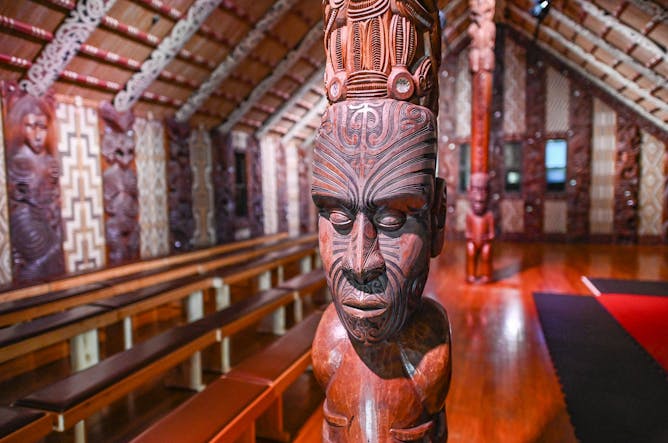
Dominic O'Sullivan, Charles Sturt University
ACT’s Treaty Principles Bill assumes Māori have been granted special privileges. But it can equally be argued the Treaty prevents the undemocratic concentration of power in the hands of a few.
|

Johanna Reidy, University of Otago
Uniforms can cost hundreds of dollars. If students are required to wear them, the government should ensure they don’t become a barrier to education.
|

Alexander Gillespie, University of Waikato
With geopolitical tension and uncertainty rising, New Zealand’s ruling coalition faces urgent questions about defence spending, alliances and its independent foreign policy.
|

Cassandra Mudgway, University of Canterbury
Representative democracy is under threat as females – particularly from minority groups – leave or choose not to enter politics. Many say the mental toll of online abuse has become overwhelming.
|
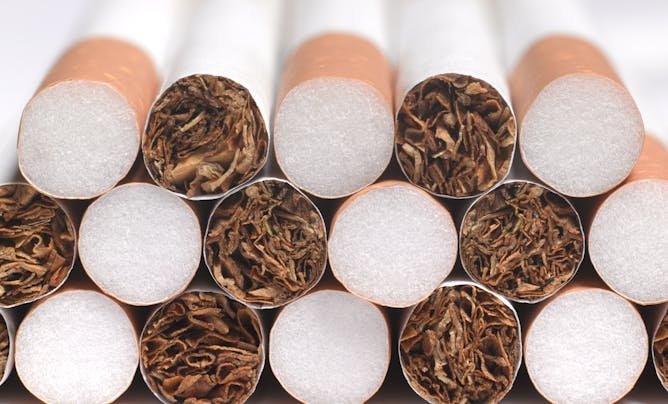
Richard Edwards, University of Otago; Janet Hoek, University of Otago
Research shows many smokers regret starting the habit. So why are we repealing the law that would have made smoked tobacco products less addictive?
|
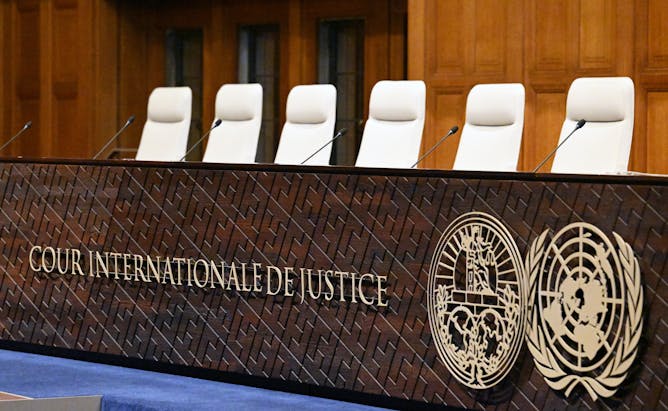
Karen Scott, University of Canterbury
Six cases are testing international accountability mechanisms and showing how small countries like New Zealand can impact global justice.
|

Holly Thorpe, University of Waikato; Grace O'Leary, University of Waikato; Mihi Joy Nemani, University of Waikato; Nida Ahmad, University of Waikato
COVID was a ‘gendered pandemic’, with women carrying very different burdens to men. A three-year New Zealand research project aimed to overcome the urge to forget, and provide lessons for the future.
|
From our foreign editions
|

Michelle O'Shea, Western Sydney University; Danielle Howe, Western Sydney University; Mike Armour, Western Sydney University; Sarah Duffy, Western Sydney University
Menopause can be a key factor in some women’s decision to retire early. But with the right interventions, workplaces can enable women to manage their symptoms and remain in the workforce.
| |

Wesley Morgan, Griffith University
Without urgent action, Earth is heading for climate catastrophe. Yet there are reasons for hope in 2024 – including a possible peak in global greenhouse gas emissions.
|
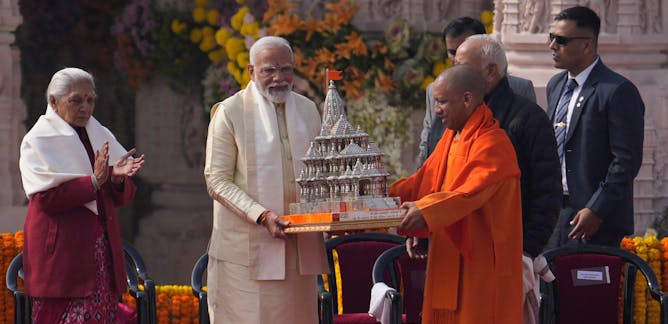
Vikram Visana, University of Leicester
Modi is running for his third consecutive term of office, but many believe he plans to remain in power indefinitely.
| |

Dominick Spracklen, University of Leeds
Nearly a third of all moorland burning in Scotland occurs on peat soil – a vital carbon sink.
|
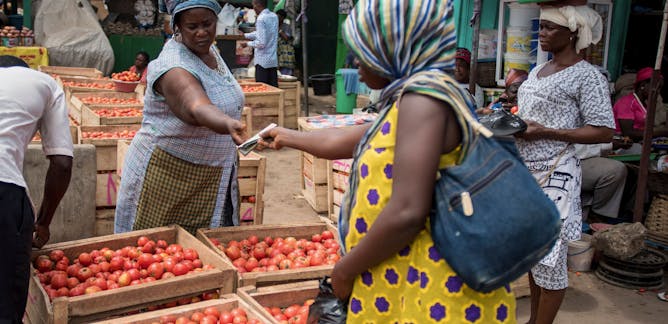
Sylvanus Kwaku Afesorgbor, University of Guelph
Ghana’s industries need fewer production constraints and more incentives to compete domestically.
| |

Kerstin Bree Carlson, Roskilde University; Line Engbo Gissel, Roskilde University
Genocide is called ‘the crime of crimes’ because of its collective significance.
|
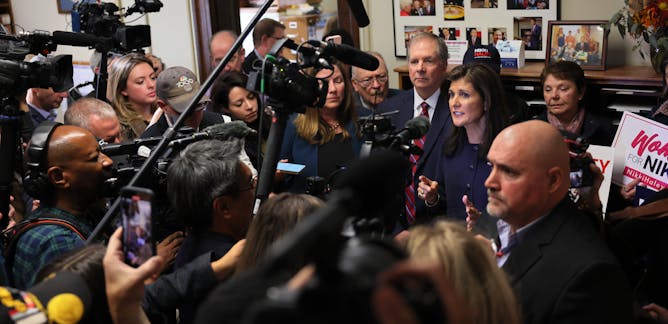
Charles R. Hunt, Boise State University
Two states that are not representative of the US, particularly in terms of race, have outsize influence in the presidential campaign.
| |
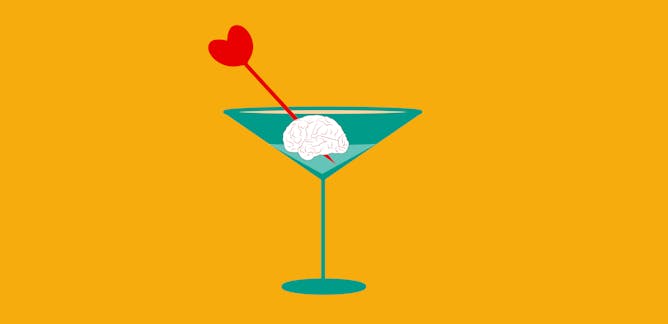
Karla Kaun, Brown University
Improved understanding of the molecular mechanisms of addiction can change how researchers and clinicians approach treatments.
|
|
|
| |
| |
| |
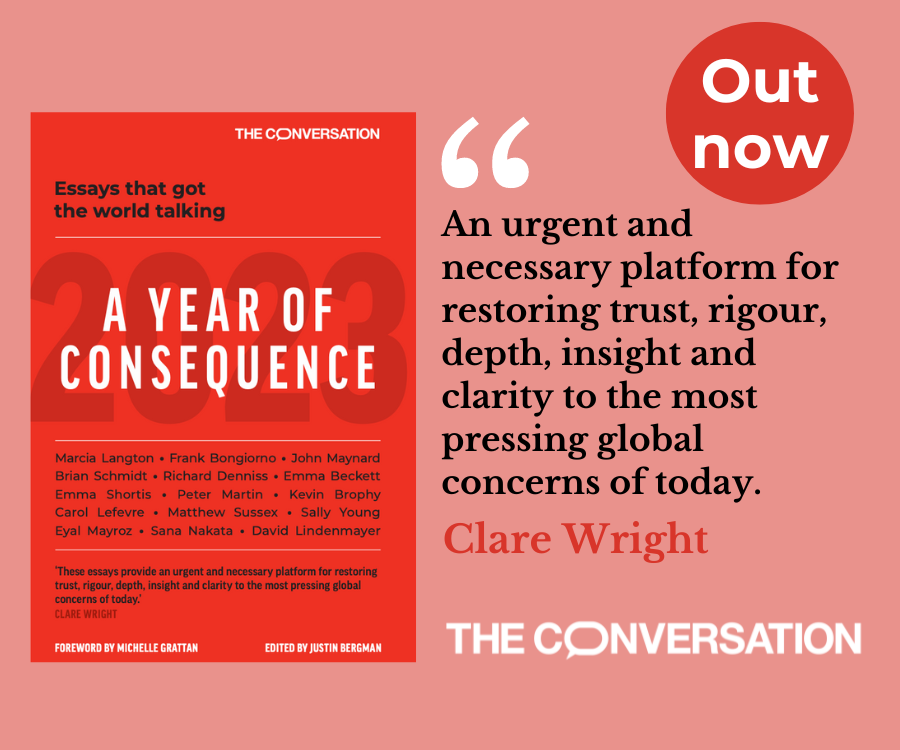
|
| |
| |
| |
| |
| |
| |
|
|
|
|
|
|
|